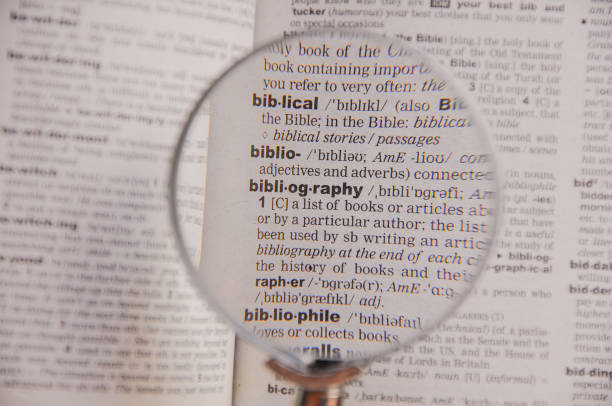
In the world of academic research, literature reviews and bibliographies play pivotal roles in upholding the integrity and credibility of scholarly work. A well-crafted literature review not only showcases a researcher's grasp of existing knowledge but also lays the groundwork for their own contributions to the field. Similarly, a meticulously prepared bibliography ensures transparency and allows readers to trace the origins of cited information. At eContent Pro, we recognize the significance of these components in academic writing and are dedicated to empowering researchers and scholars with the tools and knowledge necessary to excel in their endeavors.
In this guide, we explore the intricacies of writing literature reviews and preparing bibliographies, offering valuable insights and practical tips to streamline the process.

Understanding the Literature Review
A literature review serves as a comprehensive summary and evaluation of existing scholarship relevant to a particular research topic. It provides context for the study and highlights gaps in the literature that the researcher aims to address. Here are some key steps to consider when writing a literature review:
- Define the Scope:Begin by clearly outlining the scope and objectives of your literature review. Determine the specific research questions or themes you intend to explore and establish criteria for selecting relevant sources.
- Conduct Thorough Research: Utilize academic databases, journals, books, and other reputable sources to gather relevant literature. Be thorough in your search and critically assess the credibility and relevance of each source.
- Organize the Literature: Structure your literature review in a logical manner, organizing sources based on themes, chronological order, theoretical frameworks, or other relevant criteria. This helps readers follow the progression of ideas and arguments within the literature.
- Synthesize and Analyze: Synthesize the findings from different sources and critically analyze them in relation to your research objectives. Identify key themes, trends, and debates within the literature and evaluate the strengths and weaknesses of existing studies.
- Provide Insightful Commentary: Offer insightful commentary and interpretation of the literature, highlighting connections between different sources and presenting your own perspective on the topic. Engage in a critical dialogue with the existing literature rather than merely summarizing individual sources.
- Identify Gaps and Future Directions: Identify gaps or areas of contention within the literature and propose potential avenues for future research. By doing so, you demonstrate your contribution to advancing knowledge in the field.

Preparing the Bibliography
A bibliography, also known as a reference list or works cited page, provides a comprehensive list of all the sources cited in your research paper. It enables readers to locate and verify the sources you have used and acknowledges the contributions of other scholars. Here are some essential guidelines for preparing a bibliography:
- Follow Citation Style Guidelines: Different academic disciplines often have specific citation style guidelines, such as APA, MLA, Chicago, or Harvard. Familiarize yourself with the appropriate style for your field and adhere to its formatting rules for citing sources.
- Include All Relevant Information: For each source cited, include all relevant bibliographic information, such as author(s)’ names, publication titles, journal or book titles, publication dates, page numbers, and URLs (if applicable).
- Maintain Consistency: Ensure consistency in formatting throughout the bibliography, including the use of punctuation, italics, capitalization, and abbreviations. Consistent formatting enhances readability and professionalism.
- Check for Accuracy: Double-check the accuracy of bibliographic details, including spelling, dates, and publication information. Inaccurate citations can undermine the credibility of your research and may lead to confusion for readers.
- Organize Alphabetically: Arrange sources in alphabetical order by the author’s last name or, if no author is available, by the title of the work. This facilitates ease of reference for readers seeking specific sources.
- Include All Sources: Be thorough in documenting all sources cited in your research paper, including books, journal articles, conference papers, websites, and any other relevant materials. Omitting sources can lead to accusations of plagiarism or incomplete scholarship.

Final Thoughts
Writing a literature review and preparing a bibliography are essential skills for academic researchers and scholars seeking to contribute meaningfully to their respective fields. By following the guidelines outlined in this guide and maintaining a commitment to thoroughness and accuracy, researchers can effectively situate their work within the broader scholarly conversation and ensure the transparency and integrity of their research endeavors.
At eContent Pro, we understand the challenges of academic writing and offer expert editorial services, including English language copy editing, to help researchers refine their manuscripts and elevate their scholarly work. With our team of experienced editors, researchers can rest assured that their documents will be polished to perfection, adhering to the highest standards of academic integrity and clarity. Choose eContent Pro for your editorial needs and let us help you achieve excellence in academic publishing. Together, we can advance knowledge and foster academic excellence for the benefit of society as a whole.

About eContent Pro
Based in Hershey, Pennsylvania, USA, eContent Pro offers high-quality end-to-end editorial and publishing services, ensuring seamless workflows through the eContent Pro Business Enterprise Management System (BEMS), fast turnaround times, competitive pricing, and exceptional customer service. Since 1994, we have supported commercial publishers, university/library presses, organizations, and societies by streamlining their publishing workflow with innovative publishing solutions.